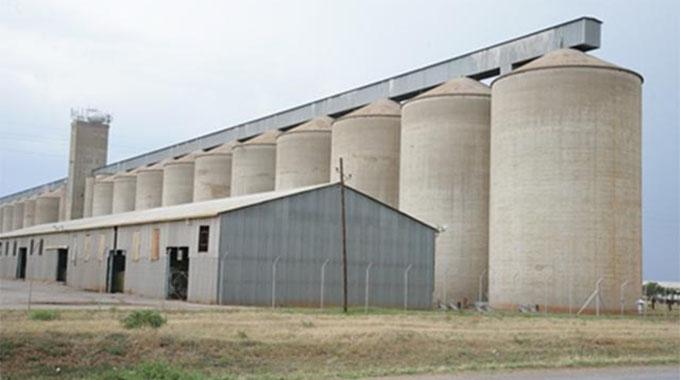News / National
Presidential inputs scheme beneficiaries urged to deliver grain to GMB
02 Jul 2025 at 11:04hrs |
0 Views

Beneficiaries of the Presidential Inputs Scheme are being encouraged to deliver at least 10 kilogrammes of grain, as well as any surplus produce, to the Grain Marketing Board (GMB) as part of efforts to bolster Zimbabwe's strategic grain reserves.
GMB Chief Executive Officer Dr Edson Badarai said the initiative is part of a broader national strategy to stabilise food prices and enhance food security in the face of climate change and global market disruptions.
"The mobile grain collection centres located at ward centres being used for the Presidential Inputs Scheme and Social Welfare collections will enable farmers to deliver their grain to the GMB. Farmers can sell their surplus grain to the GMB at these centres and also swap traditional grains for maize or vice versa," said Dr Badarai.
A total of 1,804 mobile grain collection centres have been established across the country to make grain delivery more accessible for smallholder farmers. The GMB is also offering a grain swap facility, allowing producers to exchange traditional grains such as sorghum and millet for maize or vice versa, depending on their needs.
Dr Badarai highlighted that these measures are aimed at sustaining the country's grain reserves and ensuring availability during lean periods.
"The Presidential Inputs Scheme during the 2023–2024 farming season was an initiative aimed at promoting grain security, supporting farmers, and enhancing the country's food resilience," he said.
Farmers are also being encouraged to take advantage of upcoming arrangements that allow them to use sales proceeds, warehouse receipts, or pre-purchase options to acquire inputs for the next farming season, including seeds, fertilisers, and chemicals.
Dr Badarai added that the GMB, in partnership with Agritex and local leadership, will coordinate logistics and delivery schedules to ensure smooth operations.
"As the buyer of last resort, the GMB appreciates farmers' dedication to achieving food self-sufficiency in the country," he said.
The Presidential Inputs Scheme has played a key role in improving agricultural output among smallholder farmers, and officials hope that the new grain delivery push will further contribute to national food security goals.
GMB Chief Executive Officer Dr Edson Badarai said the initiative is part of a broader national strategy to stabilise food prices and enhance food security in the face of climate change and global market disruptions.
"The mobile grain collection centres located at ward centres being used for the Presidential Inputs Scheme and Social Welfare collections will enable farmers to deliver their grain to the GMB. Farmers can sell their surplus grain to the GMB at these centres and also swap traditional grains for maize or vice versa," said Dr Badarai.
A total of 1,804 mobile grain collection centres have been established across the country to make grain delivery more accessible for smallholder farmers. The GMB is also offering a grain swap facility, allowing producers to exchange traditional grains such as sorghum and millet for maize or vice versa, depending on their needs.
Dr Badarai highlighted that these measures are aimed at sustaining the country's grain reserves and ensuring availability during lean periods.
"The Presidential Inputs Scheme during the 2023–2024 farming season was an initiative aimed at promoting grain security, supporting farmers, and enhancing the country's food resilience," he said.
Farmers are also being encouraged to take advantage of upcoming arrangements that allow them to use sales proceeds, warehouse receipts, or pre-purchase options to acquire inputs for the next farming season, including seeds, fertilisers, and chemicals.
Dr Badarai added that the GMB, in partnership with Agritex and local leadership, will coordinate logistics and delivery schedules to ensure smooth operations.
"As the buyer of last resort, the GMB appreciates farmers' dedication to achieving food self-sufficiency in the country," he said.
The Presidential Inputs Scheme has played a key role in improving agricultural output among smallholder farmers, and officials hope that the new grain delivery push will further contribute to national food security goals.
Source - Sunday Mail
Join the discussion
Loading comments…































